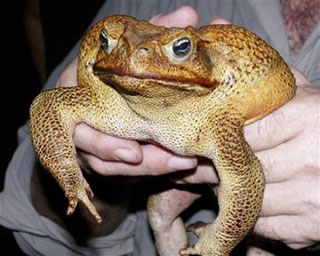biodiversity
-
Biofuel rating system may be premature
I received an email yesterday from Richard Plevin over at Berkeley:
I can only conclude from your post on Grist that you didn't actually read our report. The implications that we are either unaware of the environmental issues surrounding biofuels, or that we dismiss them, are incorrect. Your post does a disservice to those reading it by suggesting this.
I encourage you to read our report.Likewise, I could conclude that he didn't read my post since he missed the gist, which was that all
biofuelsagrofuels being produced today may be as bad or worse than fossil fuels overall, and therefore the value of a system to rate their greenness or lack thereof is questionable. If they are worse than fossil fuels, what would be the point? The authors of the report are counting angels on the head of a pin. -
A guest blog from farmer’s rights legend Hope Shand
In the global fight to preserve what’s left of agricultural biodiversity from the ravages of the multinational chemical/seed giants and their government lackeys, no civil-society organization stands taller than the ETC Group. Among other projects, ETC documents the growing dominance over the global seed market by a handful of firms: Monsanto, Syngenta, and Dupont. The […]
-
Not all amphibians are toast
 Not all amphibians are toast. From Mongabay:
Not all amphibians are toast. From Mongabay:Poison arrow frogs appear to make special effort to avoid exposure to damaging ultraviolet-B radiation ... The researchers found that the two species of frogs appear to be exhibiting UV-B avoidance behavior, with vocalizing frogs found at sites where UV-B levels were more than six times lower than average.
The ozone depletion problem is generally assumed to be under control for now, though I'm sure you can find scientists who would argue otherwise, especially if fame and wealth would result (as with the topic of global warming). A lot of people have confused the two largely unrelated issues. However, UV-B radiation levels are still elevated and are suspected to be a major factor in the present amphibian extinction crisis. If so, then there is hope that the amphibian extinction event may slow as UV-B radiation levels continue to drop:
-
Controversy in Kenya

A major controversy is brewing in Kenya right now about whether to remove the ban on wildlife hunting in order to raise money for conservation. Poaching has been devastating Kenyan wildlife; the logic is that since big-game hunters will pay lots of money to hunt big game, this will offer greater incentive to protect species and funnel money into underfunded conservation efforts.
-
Is the information age killing off honeybees?
For a while now, scientist have been scratching their heads over the cause of Colony Collapse Disorder, a phenomenon in which bees away from their hives never return after going out to collect pollen.
But according to a recent report filed by The Independent, scientists are now considering the possibility that the cause of CCD may be electromagnetic interference from mobile phone networks. From the article:
-
Can you hear me now that I’m standing in the field with no yield?
Don't know if this story will turn out to be a tempest in a teapot or kick like typhoon in a tender spot, but the implications if the latter are profound.
For you youngsters, Jack Benny's stage persona was as a miser; he used to do a bit where he would get held up and the robber would say, "Your money or your life!" Then there'd be this pause. "Well?!"
And Jack would reply "I'm thinking ..."
-
T. Rex with feathers
 Yahoo News puts it this way:
Yahoo News puts it this way:Based on the small sample we've recovered, chickens may be the closest relatives (to T. rex)," says geneticist John Asara of Beth Deaconess Medical Center in Boston, co-leader of a team reporting the discovery of faint traces of chicken-like bone lining preserved inside a dinosaur drumstick.
Science says it this way:
-
Big giant heads, unite!
E.O. Wilson accepting the 2007 TED Prize, online here.
-
Wheee!
More alarmism from scientists: By the end of the century up to two fifths of the land surface of the Earth will have a hotter climate unlike anything that currently exists, according to a study that predicts the effects of global warming on local and regional climates. And in the worst case scenario, the climatic […]